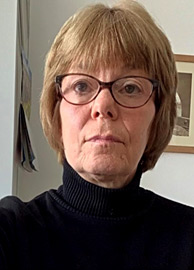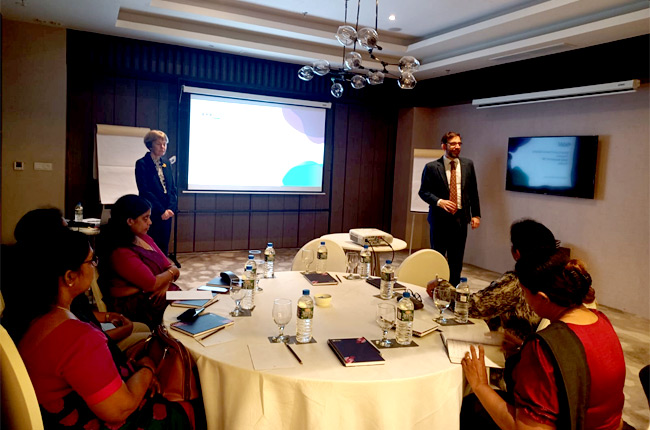
Dr.Jenny Cann, Quality Manager at the UK Quality Assurance Agency
Across the globe, Transnational Education (TNE) has provided a pathway for students to obtain internationally recognised qualifications while studying in their home countries. In South Asian nations such as Sri Lanka, TNE is making a significant impact in the education space, enabling the growing middle class to access higher education from world-class universities located in several countries offering such services. For several years, the British Council in Sri Lanka has been working closely with local authorities and policymakers as well as reputed international educational institutions to ensure the delivery of high-quality TNE in the country.
Sri Lanka is the 2nd largest market for UK transnational education (TNE), and has an enrolment of circa. 54,000 students. With this many students and private education institutes involved, it’s imperative to assure the quality of the education received to benefit both students and parents.
Last year, the British Council in Sri Lanka, together with Times Higher Education, conducted an extensive research on the TNE landscape in Sri Lanka with the aim of offering a comprehensive understanding of the operational and quality assurance landscape of the TNE within the country.The results of the research revealed that Sri Lanka is currently the second-largest host country and the fastest-growing among the top ten host nations for UK TNE. It also underscored the opportunities and challenges faced by students and educational institutions; laying the groundwork to support local government agencies and education providers in informed decision making to develop, support and sustain TNE in the country.The findings highlighted the need to strengthen the quality assurance framework for UK TNE in Sri Lanka.
Amidst this backdrop, Dr Jenny Cann – Quality Manager of the Quality Assurance Agency for Higher Education (QAA) in UK was recently in Sri Lanka to impart her knowledge about good practices of quality assurance in TNE from around the world, build awareness of quality assurance in TNE, and obtain a better understanding of what approaches and mechanisms have been successful or not in Sri Lanka.Dr. Cann is a former Associate Dean (Quality) at University of Bedfordshire now working part-time for QAA, a world-leading quality agency providing impartial regulatory and collaborative quality assurance and enhancement.
Dr. Cann noted that Sri Lanka has quite a long tradition with TNE and the availability of an education system that has Ordinary Level (O/L) and Advanced Level (A/L) aligns better with the UK education system. While English language skills is generally a lot higher among Sri Lankan students than in other countries, one challenge has been where the approach to education is one of “sage on the stage” where the lecturer stands and delivers the subject content to students. Both staff and students need to be trained into different ways of teaching, transitioning into one of “guide on the side” approach. Another challenge has been where students have got used to sitting for exams but need to get used to a wide range of assessments that expose them to the kinds of situations that they’re bound to face when they enter the world of work. These assessments have been carefully selected as they help students to demonstrate specific knowledge and application of that knowledge with skills that they will require in the workplace.
While sharing her knowledge with Sri Lankan TNE providers Dr. Cann pointed out that while Sri Lankan providers did deliver a number of good practices applicable in other countries, there were areas to be worked on. Having emerged from a financial crisis in 2022, Sri Lankan providers and their UK partners worked well together to support students during the difficult period, underscoring the importance of proper communication channels to establish trust and find viable solutions. Several strategies, such as paying fees in instalments and doing studies online to enable students to both work and study, were jointly put in place through these collaborations. Additionally, another positive factor was that the larger and more established local TNE providers have demonstrated their farsightedness with 5-year or 10-year plans mapped out for their TNE programmes while strong partnerships have been established by them with the corporate world so that graduates’ knowledge and skills are better aligned to the needs of the job market.
UK universities are responsible for the quality of their TNE which takes place with the help of a five year cycle of quality enhancement reviews managed by a team of peers to ensure that the standard delivered by the TNE provider in any part of the world is the same as in the UK. In Sri Lanka, every UK provider works collaboratively with the local TNE partner and has agreed to the quality approaches, standards, practices, and policies that are operated in Sri Lanka, all of which are monitored at every level. Having identified the successes and shortcomings, an action plan is devised and sent to the UK provider, following which a plan is set in motion to make necessary improvements.
Dr. Cann reiterated that the British Council plays a central role in the success of TNE in Sri Lanka primarily due to its in-depth understanding of the educational requirements of the country and its deep roots for several decades. The British Council assists in identifying suitable educational partners in Sri Lanka and establishing links with them. A large number of the local TNE providers have strong bonds with the British Council driven by previous engagements and have expressed their appreciation for the support and training received over the years. The TNE providers acknowledged the fact that whenever they communicated their requirements to the British Council, it promptly ensured that their needs were looked into. Such a foundation highlighted the strong position Sri Lanka is in when it comes to TNE and the country is well-positioned to further develop its TNE quality and standards in the years to come.









